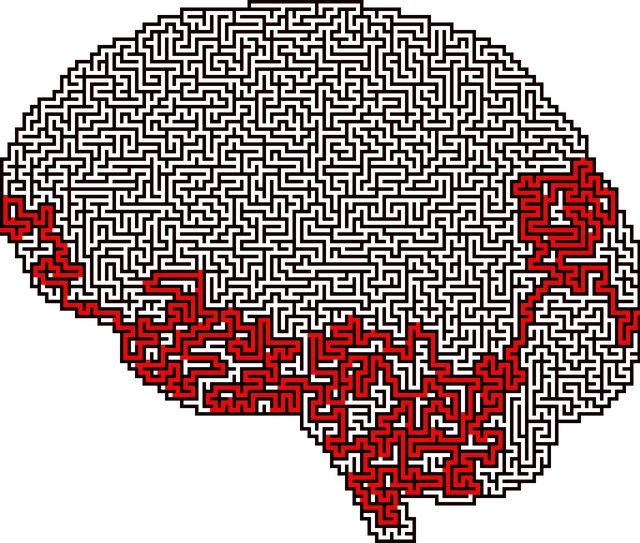Kaiser Permanente's training programs in Aurora focus on understanding trauma, its diverse impacts, and holistic healing. These programs equip healthcare providers with tools to support individuals affected by trauma, addressing mental health, emotional well-being, and inner strength. By fostering safe spaces, promoting vulnerability, and normalizing trauma-informed care, these initiatives enhance accessibility to compassionate, effective trauma support tailored to each individual's unique needs.
Trauma support services are vital for healing and recovery, especially in healthcare settings. This article explores comprehensive strategies to enhance trauma care, focusing on the critical role of understanding trauma’s impact and implementing informed practices. We delve into innovative programs like Kaiser Permanente’s training initiatives, which empower professionals to offer compassionate, effective support. Furthermore, we highlight Aurora’s efforts in expanding access to trauma services, ensuring a broader reach for those in need.
- Understanding Trauma and Its Impact: A Foundation for Support Services
- Kaiser Permanente Training Programs: Enhancing Care through Expertise
- Implementing Effective Trauma-Informed Practices in Healthcare Settings
- The Role of Aurora in Expanding Access to Trauma Support Services
Understanding Trauma and Its Impact: A Foundation for Support Services

Understanding trauma is a fundamental step in establishing effective support services. Trauma, as defined by Kaiser Permanente training programs Aurora, goes beyond a single event; it encompasses a range of experiences that overload an individual’s ability to cope and process emotions. This can include physical or emotional abuse, accidents, natural disasters, military combat, or any situation where a person feels a sense of danger or powerlessness. The impact of trauma is multifaceted, affecting not just the mind but also the body and spirit. It can lead to complex psychological reactions such as anxiety, depression, and post-traumatic stress disorder (PTSD), hindering an individual’s ability to function in daily life.
Addressing trauma requires a holistic approach that recognizes the interconnectedness of mental health, emotional healing processes, and Inner Strength Development. Kaiser Permanente training programs Aurora highlight the importance of creating safe spaces where individuals can process their experiences without judgment. This is crucial in fostering trust and encouraging vulnerability—essential elements for effective support. Additionally, Mental Health Policy Analysis and Advocacy play a pivotal role in ensuring that trauma-informed care becomes the norm, with services accessible to all who need them.
Kaiser Permanente Training Programs: Enhancing Care through Expertise

Kaiser Permanente, recognizing the importance of specialized training in trauma support, has developed comprehensive programs tailored to their healthcare providers in Aurora and beyond. These initiatives focus on enhancing care delivery through expertise in various aspects of trauma support. The Kaiser Permanente training programs offer a range of workshops and seminars that cater to different roles within the healthcare system.
One key area of emphasis is Emotional Intelligence, equipping caregivers with tools to manage their own emotional well-being while providing compassionate and effective patient care. Additionally, these programs delve into Burnout Prevention Strategies for Healthcare Providers, addressing the challenges faced by front-line staff in high-stress environments. The inclusion of Community Outreach Program Implementation allows healthcare professionals to expand their services beyond clinical settings, fostering a more holistic approach to trauma support within diverse communities.
Implementing Effective Trauma-Informed Practices in Healthcare Settings

Implementing effective trauma-informed practices in healthcare settings is paramount for providing compassionate and comprehensive care to individuals with a history of trauma. Organizations like Kaiser Permanente have recognized this need, developing training programs such as those offered in Aurora, to equip healthcare professionals with the knowledge and skills to offer trauma-sensitive support. These programs emphasize the importance of understanding the impact of trauma on the mind and body, fostering an environment that prioritizes safety, trust, and empowerment.
By adopting trauma-informed approaches, healthcare providers can better address the complex needs of patients, promoting mental wellness and facilitating healing journeys. The integration of Mind Over Matter principles within these practices empowers individuals to regain a sense of control and resilience, acknowledging that recovery is a personal process unique to each individual’s experience.
The Role of Aurora in Expanding Access to Trauma Support Services

Aurora plays a pivotal role in expanding access to trauma support services, particularly through its innovative Kaiser Permanente training programs. These initiatives focus on empowering healthcare professionals with the necessary tools to effectively address trauma-related issues. By integrating Crisis Intervention Guidance and Stress Management techniques into their curriculum, Aurora ensures that medical staff are equipped to handle complex cases with sensitivity and expertise.
Moreover, these training programs contribute to Mental Illness Stigma Reduction Efforts by fostering an environment where mental health is prioritized. Through comprehensive education, healthcare providers gain a deeper understanding of trauma’s impact on individuals’ lives, enabling them to offer compassionate care tailored to each patient’s unique needs. This holistic approach not only enhances service delivery but also encourages a culture of support and recovery within the community.
In conclusion, establishing comprehensive trauma support services is paramount in healthcare. By understanding trauma’s profound impact, we can implement effective strategies like those promoted by Kaiser Permanente training programs and leverage innovative initiatives such as Aurora’s efforts to expand access. These steps are crucial in creating safer, more healing-focused environments for all individuals seeking care. Kaiser Permanente training programs and entities like Aurora play pivotal roles in this journey towards better trauma support.






